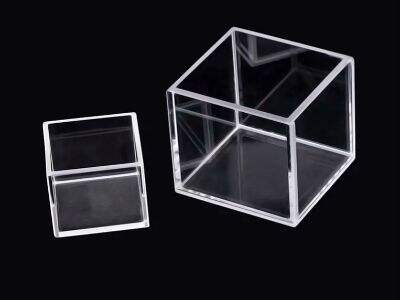Quartz cuvettes are a necessity for scientists and professionals using spectrophotometry. These are small, clear vessels for containing samples to be measured and can have improved light absorption and transmission readings. In this article, let’s take a look at the best methods to keep your quartz cuvettes clean to obtain reliable and accurate results using spectrophotometry.
A Brief Tutorial on How to Clean Your Quartz Cuvette:
Cleaning of Quartz Cuvettes It is easy to clean Quartz Cuvettes with some common items. Begin by rinsing the cuvette with distilled water in order to clean out any residue or contaminate. Pour in a few drops of dishwashing liquid, and agitate the cuvette. Wash the cuvette very thoroughly with distilled water to make sure no soap is left. Wipe the cuvette dry with a nothing less than clean, lint-free cloth. Avoid any harsh chemicals or abrasive substances, they will not only scratch the quartz but also can decrease the accuracy of your measurements.
How to keep clear and precision of quartz cuvettes:
Proper care and storage of your Quartz Cuvettes is crucial to ensure their clarity and accuracy. Never touch the optical surfaces when handling the cuvette, as fingerprints or smudges on the surfaces can affect the results. Keep the cuvettes in their box and store under clean, dry and shady condition to protect them from damage. Make sure to check the cuvettes frequently for scratches or cloudiness—it can block the transmission of light and thus affect your measurements.
Why do we need cleaning Quartz Cuvettes in spectrophotometry:
How to clean your Quartz Cuvettes: Note that cleaning of the quartz cuvette is a key element of ensuring the accuracy and veracity of your test results in spectrophotometry. Light blockage occurred due to contamination with dust, fingerprints and residuals from previous samples in cuvette can disturb to a transmission of light into cuvette and destabilizes in readings. Cleaning cuvettes after use and proper storage will help retain the optical clarity and integrity of the cuvettes to achieve repeatable results.
Things to avoid when cleaning quartz cuvettes:
While cleaning quartz cuvettes don’t commit the following mistakes which may harm quartz or may degrade their performance. Do not use any strong chemicals, abrasive products, steel wool, scoring pads or high temperatures because they can scratch or weaken the surface of the quartz. Cuvettes should not be stacked or have anything heavy stacked on top of them, it may cause them to break or chip. Treat cuvettes gently and store in a safe place to avoid injury.
Tips for Prolonging the Life of Quartz Cuvettes:
Quartz cuvettes function best and longest when they are cleaned and maintained according to best practices to keep your spectrophotometry measures accurate. Regular cleaning with a mild detergent and distilled water, careful handling and correct storage will ensure that they last as long as possible and their optical clarity is not impaired. Quality quartz cuvettes from Jinke Optical combined with good laboratory practices help you to obtain excellent and reproducible results in your experiments.
 EN
EN
 AR
AR
 BG
BG
 HR
HR
 CS
CS
 DA
DA
 NL
NL
 FI
FI
 FR
FR
 DE
DE
 EL
EL
 HI
HI
 IT
IT
 JA
JA
 KO
KO
 NO
NO
 PL
PL
 PT
PT
 RO
RO
 RU
RU
 ES
ES
 SV
SV
 TL
TL
 ID
ID
 LV
LV
 SR
SR
 SK
SK
 UK
UK
 VI
VI
 HU
HU
 MT
MT
 TH
TH
 TR
TR
 FA
FA
 AF
AF
 MS
MS
 GA
GA
 IS
IS
 LA
LA
 KK
KK







